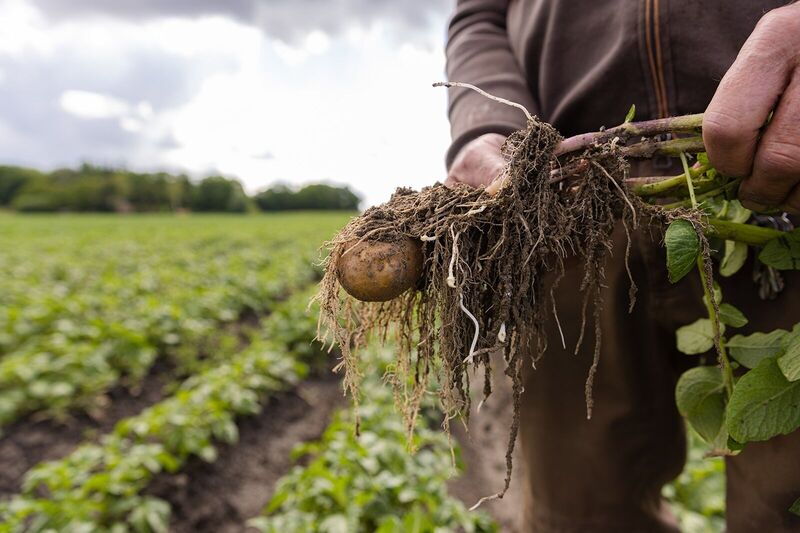Weak crops are more susceptible to diseases and pests. Drought, stress, and insufficient nutrition can cause a plant to become weak, but aggressive fungi such as Fusarium can also have a devastating impact on plant resilience. This opens up the door for other diseases and pests to strike.
Plants have a natural resistance to diseases and pests, which is essential as there wouldn't be any plants otherwise! This natural resilience keeps crops healthy and productive and can be even more effective if growers ensure that their plants have the best conditions for growth.
But then Fusarium strikes... This is an aggressive soil-borne fungus that excels at breaking down a plant's defenses. Even if a crop manages to maintain its defenses, a Fusarium infection can still cause the plant to weaken, opening the door to parasites that target weakness, such as the pathogen Pythium.
But there is a solution: by applying Trianum you can stop both Fusarium and Pythium in their tracks.
Defense strategies
Plants are not entirely without their own defenses and are capable of producing antibodies that work against Fusarium and other fungi.
However, if plants spend too much energy fighting off infections, it may reduce their resilience in the face of insect attacks. This means that plants affected by Fusarium become more susceptible to damage from insects.
Potatoes
Fusarium can be especially devastating to potatoes if there are also nematodes in the soil. The nematodes puncture the tubers, creating little wounds that allow the fungi to penetrate. In other crops, plant-parasitic nematodes damage the root system. Here, Fusarium can use this damage to enter the plant, while other fungi also have an easy way in. By applying Trianum, you can help the plant to grow an even stronger root system.
